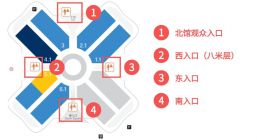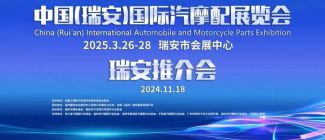Scan QRCode

At the Munich International Auto Show (IAA), domestic brands participated in various sub sectors of the automotive industry, and the electrification technology it brought attracted a lot of attention. And many of these participating domestic brands have ambitions to go abroad, which will inevitably bring considerable pressure to local German enterprises.
Therefore, the counterattack from local German companies such as Volkswagen and Mercedes Benz has become an important highlight of this Munich Auto Show.
In fact, although Volkswagen has experienced a rare decline in the Chinese market, as a dominant German domestic enterprise for decades, its strength cannot be underestimated, and it still holds a leading position in the global automotive industry.
From the information disclosed by the senior management of the public, it can be seen that the public has a comprehensive perspective on future development. In addition to steadfastly developing fuel powered vehicles, Volkswagen is also making up for its shortcomings and actively turning around. Its electrification is proceeding in an orderly manner. On the other hand, Volkswagen is accelerating its layout in the Chinese market, and the business philosophy of "in China, for China" has also welcomed the 2.0 version.
Thomas Schull, member of the Volkswagen Group's management board and technical leader, stated that we have demonstrated the feasibility of the solid-state battery concept and are currently in the preparation stage for industrialization and large-scale production. We hope to further promote the mass production of solid-state batteries and achieve better costs.
Regarding charging networks, Volkswagen plans to mainly promote them in North America, Europe, and China, with plans to have over 40000 high-power fast charging stations by 2025.
However, whether it is the fuel vehicle market or the electric vehicle market, Volkswagen will pursue consistency while also considering regional differentiation. In order to achieve a balance between the two, Volkswagen has launched the "ENERGIZE" project, committed to conveying a unified brand voice around design, communication, product quality awareness, and technology, while also taking into account the unique needs of various regional markets.
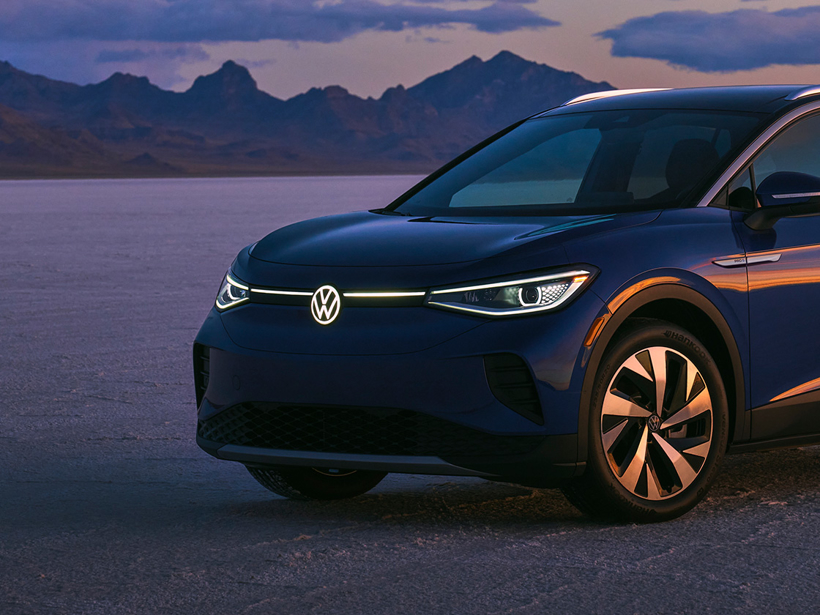
Public Reflection on the Future
In the public's view, the proportion of pure electric vehicles worldwide will reach 30% by 2026 and 50% by 2030. The process of electrification in the Chinese automotive industry is faster, and the popularity and speed of electric vehicles are also much faster than in Europe.
Therefore, Volkswagen's overall plan for the future can be summarized as further accelerating the transformation from fuel powered vehicles to electric vehicles while maintaining the profitability of fuel powered vehicles.
At present, fuel powered vehicles will still maintain an important position in the product lineup. At this year's IAA, in addition to ID In addition to the GTI Concept concept car, electric models such as ID.4, ID.5, and ID.7, the new generation of fuel powered models such as Passat and Tiguan have also been showcased. According to the plan, these two models will launch plug-in hybrid versions based on the MQB platform.
However, the electrification transformation of Volkswagen is imperative. Volkswagen is accelerating its electrification campaign and plans to launch 11 new pure electric models by 2027, ranging from compact cars priced under 25000 euros to family sedans. In the future, some ID family models will also launch GTI versions. By 2033, Volkswagen will fully shift to electric vehicle production in Europe.
In addition, Volkswagen plans to launch the group's second modular electric vehicle platform in 2024- the "High end Electric Platform" (PPE) developed together with Audi and Porsche. The Audi Q6 e-tron will be the debut model of this platform. Starting from 2025, an enhanced version of the MEB+platform will be available. At that time, Volkswagen, Skoda, and Cupra will launch a batch of entry-level MBE+models. Volkswagen will also shift to the 'Scalable System Platform' (SSP) in the future. Volkswagen actively predicts that in the future, all Volkswagen brands and departments' over 40 million vehicles will rely on the SSP platform.
In terms of batteries, Volkswagen has always emphasized standard battery cells. The standard battery cells have a unified specification and size, which can support up to 80% of the group's vehicle models. However, Volkswagen will not rely 100% on its own battery cells, and will continue to promote cooperation with third-party suppliers and partners such as Guoxuan High Tech, Ningde Times, and LG.
At the same time, Volkswagen will make more investments to promote vertical integration, which means that Volkswagen will directly invest in important raw materials and even upstream mineral resources.
It is understood that Volkswagen plans to establish three super battery factories with a total production capacity of around 200GWh. The first factory is located in Salzgit, Germany, the second factory is located in Saganto, Spain, and the third factory is located in St. Thomas, Canada.
In terms of solid-state batteries, Volkswagen has chosen to collaborate with QuantumScape. The first industrialization project of solid-state batteries in cooperation between the two parties is expected to be achieved in 2027
Thomas Schull, member of the Volkswagen Group's management board and technical leader, stated that we have demonstrated the feasibility of the solid-state battery concept and are currently in the preparation stage for industrialization and large-scale production. We hope to further promote the mass production of solid-state batteries and achieve better costs.
Regarding charging networks, Volkswagen plans to mainly promote them in North America, Europe, and China, with plans to have over 40000 high-power fast charging stations by 2025.
However, whether it is the fuel vehicle market or the electric vehicle market, Volkswagen will pursue consistency while also considering regional differentiation. In order to achieve a balance between the two, Volkswagen has launched the "ENERGIZE" project, committed to conveying a unified brand voice around design, communication, product quality awareness, and technology, while also taking into account the unique needs of various regional markets.
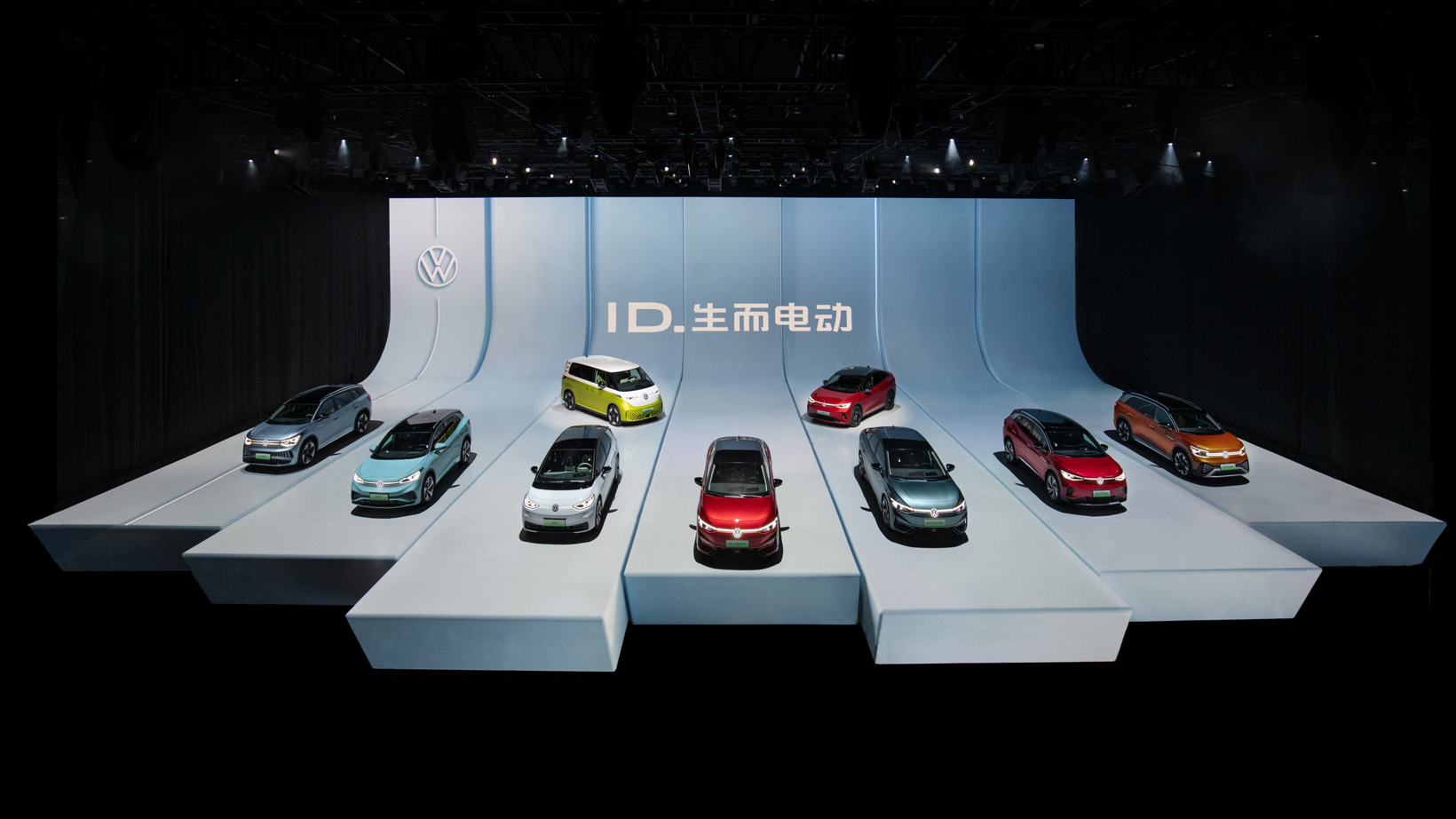
Actively layout the Chinese market
As the world's largest new energy market, the Chinese market will always be a hurdle that multinational automaker Volkswagen cannot overcome.
At present, compared to the global market, Volkswagen faces more intense competition in the Chinese market and is slightly at a disadvantage. Therefore, how to turn the situation around is a key direction for Volkswagen to consider.
To this end, Volkswagen has formulated and is implementing a development strategy for China towards 2030.
It is understood that Volkswagen will continue to leverage its advantages in the gasoline vehicle market. This year, Volkswagen Group's share in the Chinese fuel vehicle market has increased from 18% to over 20%. In the coming years, Volkswagen will continue to strengthen its product lineup with new models such as the Tiguan, Sagitar, Magotan, and Audi Q4 and Q8. By 2030, Volkswagen will launch a total of 17 new fuel powered models.
However, the development of pure electricity remains crucial. Last year, Volkswagen launched three new models: the Audi e-tron GT, Q4 e-tron, and Q5 e-tron. During the Shanghai Auto Show, the Volkswagen brand's first pure electric sedan, ID. 7, was also officially unveiled. At the end of this year, Volkswagen Anhui will officially start production.
In addition to the pure electric model Cupra Tavascan, which will be exported to the European market, another Volkswagen brand model is expected to be offline in 2024. Audi FAW New Energy Vehicle Co., Ltd. will also be put into production in Changchun by the end of 2024. According to the plan, Audi will launch three new models in 2025 and 2026. By 2030, Volkswagen Group's brands will have no less than 30 pure electric models.
On this basis, Volkswagen strives to have the same level of profitability as traditional fuel powered models in pure electric vehicles, and plans to achieve this goal shortly after 2025.
However, in the view of Chairman and CEO of Volkswagen Group (China), Bairuide, hybrid is a weakness that Volkswagen needs to fill at the current stage. Bairuide stated that the sales of our models are very high, and through the promotion plan of plug-in hybrid models, we will vigorously achieve the transformation from fuel powered models to new energy vehicle models.
According to the plan, currently, Volkswagen is mainly applying hybrid technology to the A-class and B-class car segments. Specifically, Volkswagen will gradually introduce PHEV plug-in hybrid versions for A-class and B-class vehicles based on the MQB platform, which have a pure electric range of at least 100 kilometers.
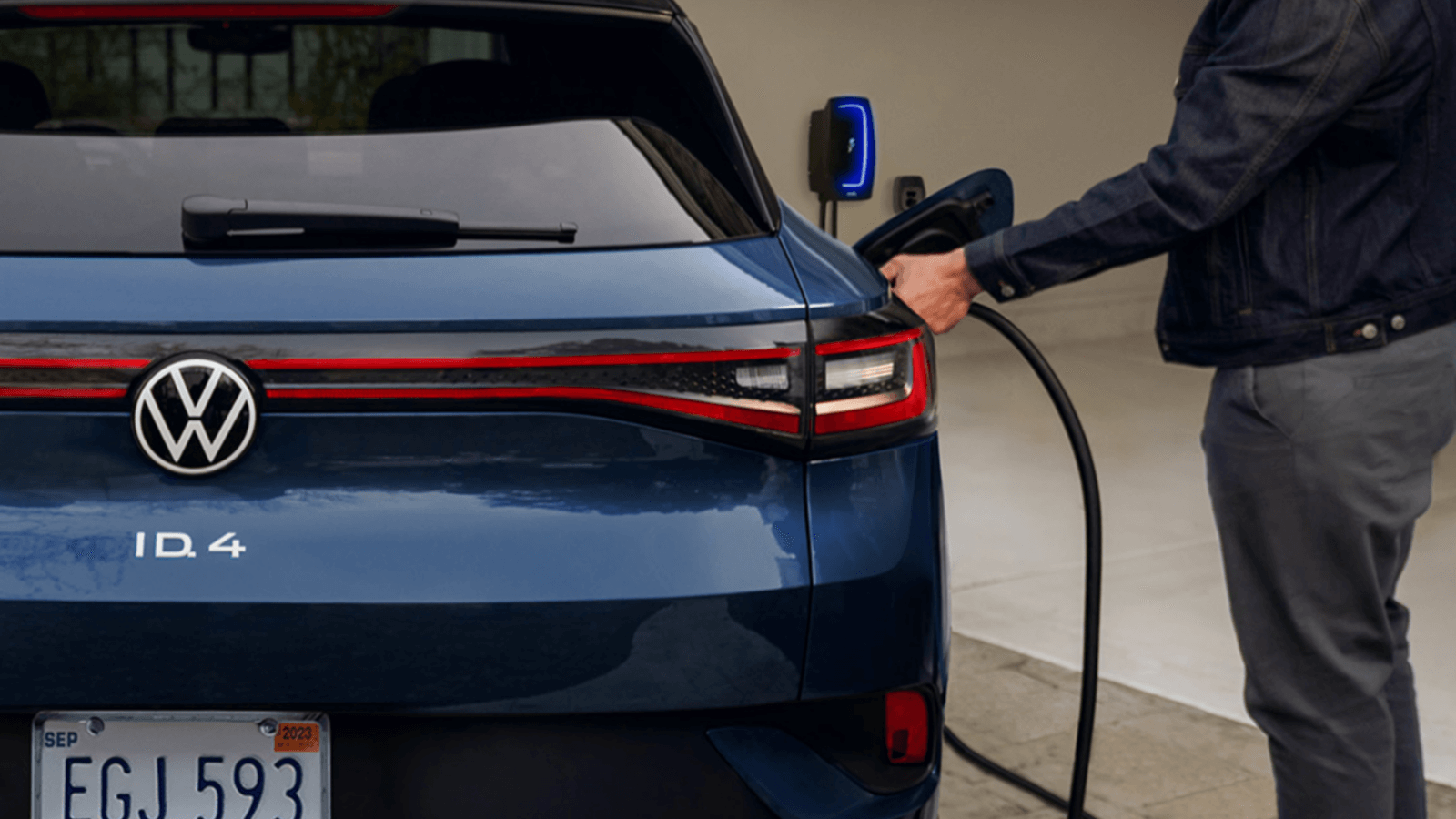
In China, for China "2.0 version
The public has always practiced the strategy of "in China, for China", but now they have a deeper understanding of this strategy.
Our previous model was to develop car models in Europe and produce them in China, which is in a sense a manifestation of the "in China, for China" strategy, because the manufacturing, raw material procurement, and sales of related car models were all carried out in the Chinese market, and we also sold them in the Chinese market. But the current strategy of 'in China, for China' is different, and we are increasingly focusing on technology development work in China. Because, especially in the digital field, the needs of Chinese customers are different from those of other regions in the world, such decisions cannot be made by the German headquarters. We need to maintain resonance with the Chinese market and Chinese customers Bairuide stated that Volkswagen will further optimize its strategy in the Chinese market.
At the decision-making level, with the establishment of Volkswagen (China) Technology Co., Ltd. in Hefei, Volkswagen has given the Chinese team greater research and development autonomy. In addition to requiring necessary legal audits from the German headquarters, the Chinese team has significant autonomy in research and development and technology.
At the product level, in April this year, Volkswagen announced that it would invest approximately 1 billion euros to establish a research and development, innovation, and procurement center focused on intelligent connected electric vehicles. The new company will settle in Hefei.
According to the official introduction of Volkswagen, this company (project name is "100% TechCo") will cover the functions of vehicle development, component development, and procurement. It will enhance the synergy in the development process and introduce advanced technology from China into the early process of product development, making the group's car products more responsive to the needs of Chinese customers and promoting products to enter the market faster.
With the operation of "100% TechCo" in 2024, the development cycle of the group's new products and technologies will gradually be shortened by about 30%, and the profitability will also be further improved.
In order to accelerate product development, in addition to expanding its own localized research and development, Volkswagen has begun to actively cooperate with Chinese enterprises.
On July 26th, a notice from Volkswagen Group became a landmark moment in the history of Chinese automobiles. The announcement mentioned that Audi will collaborate with SAIC to jointly develop smart electric vehicles, and a strategic memorandum has been signed; In addition, Volkswagen and Xiaopeng have reached a technical framework agreement to jointly develop two Volkswagen branded electric vehicles in the initial stage. These two new cars are specifically designed for the Chinese market and will supplement the product portfolio based on the MEB platform. They plan to go to the market in 2026, and the new model is expected to be produced at Volkswagen Anhui. In addition, both parties plan to develop a new electric platform for the next generation of intelligent connected electric vehicles.
We now hope to accelerate the electrification process of our product portfolio through cooperation with Xiaopeng Automobile and SAIC Group. Through this approach, we will gain greater advantages in the dynamic market development through new car models. These new products will provide new impetus for growth, especially in niche markets that relevant brands have not yet entered
In addition, Volkswagen is also committed to improving software research and development. Similar to the approach of product research and development, Volkswagen is actively collaborating with Chinese companies while strengthening its own research and development. According to official disclosure by Volkswagen, by the end of this year, the number of software experts in CARIAD China, a software subsidiary of Volkswagen, will increase from 800 in 2022 to about 1200. At the same time, Volkswagen will also collaborate with companies such as Horizon and Xiaopeng Automobile in the field of autonomous driving. In addition, Volkswagen also collaborates with Zhongke Chuangda in information and entertainment systems and automotive connectivity.
In terms of batteries, Volkswagen has chosen to cooperate with Chinese power battery manufacturer Guoxuan High Tech. According to the plan, Volkswagen is building a battery factory in Hefei with a total production capacity of 20GWh. By the end of 2024, Volkswagen is expected to launch the next generation of battery cells.
This article is reprinted from Gaishi Automotive Information Network
AMS2024 Exhibition Guide | Comprehensive Exhibition Guide, Don't Miss the Exciting Events Online and Offline
Notice on Holding the Rui'an Promotion Conference for the 2025 China (Rui'an) International Automobile and Motorcycle Parts Exhibition
On September 5th, we invite you to join us at the Wenzhou Auto Parts Exhibition on a journey to trace the origin of the Auto Parts City, as per the invitation from the purchaser!
Hot Booking | AAPEX 2024- Professional Exhibition Channel for Entering the North American Auto Parts Market
The wind is just right, Qianchuan Hui! Looking forward to working with you at the 2024 Wenzhou Auto Parts Exhibition and composing a new chapter!
Live up to Shaohua | Wenzhou Auto Parts Exhibition, these wonderful moments are worth remembering!
Free support line!
Email Support!
Working Days/Hours!
